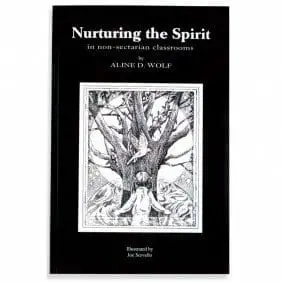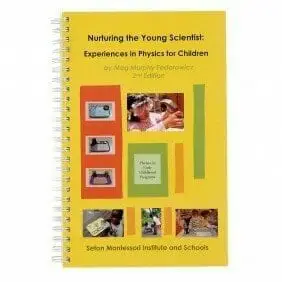I have several go-to resources for lesson planning and activities for my children. Post-it notes come in handy to mark interesting and intriguing ideas, ones that I hope my sons will enjoy, or ones to jump on as soon as the boys take an interest. These resources & books I found through my Montessori training and through friends.

I have perused many books yet these eight are the ones that are beginning to break at the binding. So, I must share my list of Books for Homeschool Curriculum Lesson Planning, including lessons, general themes & ideas, and activities. Enjoy!
Homeschool Curriculum Lesson Planning
Brain Gym is a book recommended by a speaker at an AMS conference a few years ago. The concept – combining learning and movement – behind the book resonates with our family. Kinesiology, or Educational Kinesiology, is the study of “exercises that activate the brain for optimal storage and retrieval of information.” Examples of activities include double doodling, crossing midline exercises, and deep breathing work. This book reads much like a story integrating the exercises into daily life. There is a resourceful cross-reference section distinguishing between reading skills, thinking skills self-awareness skills, and so on.
Science Arts: Discovering Science Through Art Experiences is a must-have book. The activities offer children a chance to learn basic science concepts through art. The book is set up well for us adults, too, with tidbits behind the science and easy to follow set up instructions. I also appreciate the image icons at the top of the page to use as a quick reference guide.
Fun With My 5 Senses: Activities to Build Learning Readiness is a wonderful book for lesson planning around the five senses, or just generally. There is a wide array of indoor and outdoor activities as well as activities that get your body moving. The setups are easy and inexpensive for the most part.
Nurturing the Spirit is a beautiful book that explores spirituality within the context of the classroom. The author not only discusses spirituality but offers us tangible ways to bring these ideas into the classroom and our homes. I appreciate how the author writes about spirituality from the perspective of the teacher, the classroom, and the children. Suggestions include ways to cultivate stillness, to create a sense of awe and wonder in your environment, and to breed peaceful energy.
Young Investigators: The Project Approach in the Early Years clearly explains the project-based approach with children pre-k through elementary. The author gives a step by step guide to setting up the project-based approach in your environment. I love the use of real images. The book is easy to follow.
MathArts: Exploring Math Through Art for 3 to 6-Year-Olds, like it’s sister book above, is extremely accessible to teachers and parents. The activities (over 200 of them!) are doable and easy to manage for the most part. Children learn math through artwork. My boys thrive on this sort of activity. I don’t have to say “Let’s do some math, boys!” We get to do artwork and then I get to allow them the opportunity to discover the math on their own time.
Tinkerlab: A Hands-On Guide for Little Inventors, as some of you know, is my new favorite book. There are 55 activities focused on a project-based learning approach. There is a lot of exploration in this book for children and their adult counterparts. You’ll find yourself building drawing machines to collecting boxes with which to build to blowing bubbles to create beautiful artwork all in the name of fun and learning. I appreciate the opening philosophy and suggested materials list. A must own.
Nurturing the Young Scientist is easy to follow a book written by a Montessorian. I received this book as part of my training. The activities cover areas such as Forms of Matter, Chemistry, Magnetism, Mechanical Energy, Sound, and Light. I like that the book is set up so the lessons (within each section) build upon one another. This guides me in planning an opening lesson to more complex ones. I also appreciate the list of materials by topic. Very helpful.








